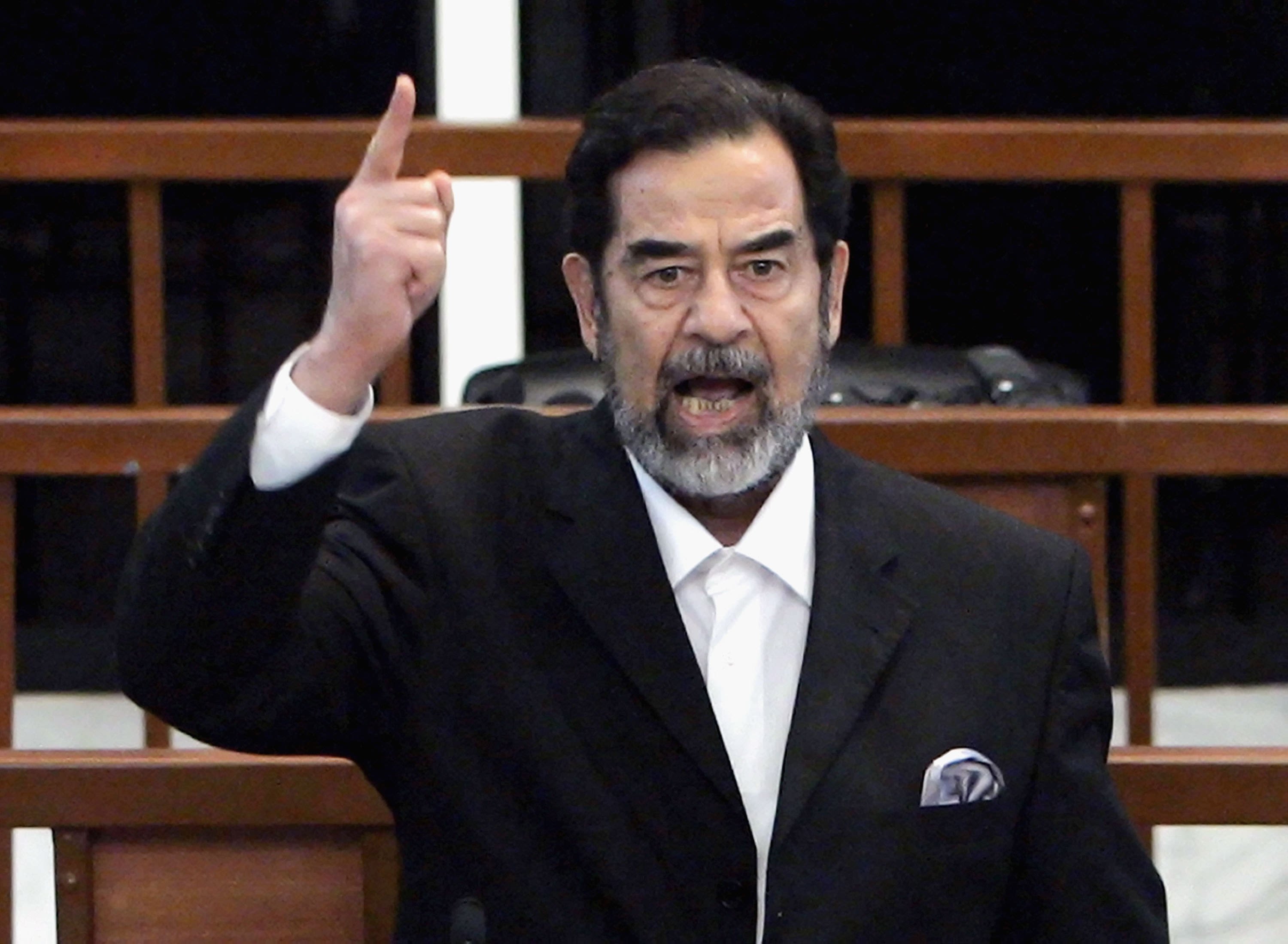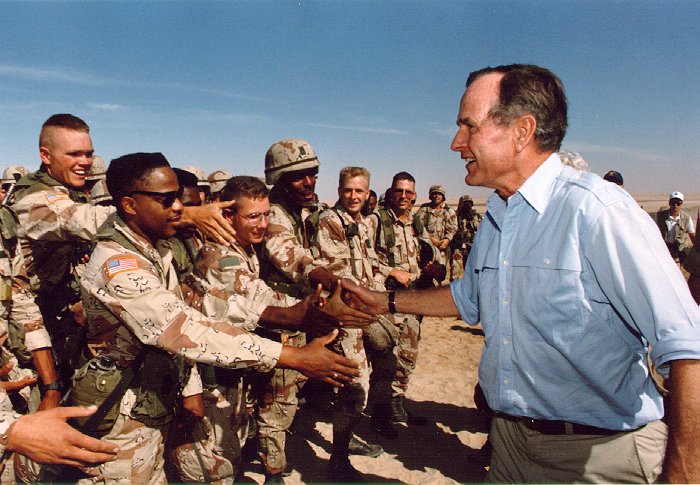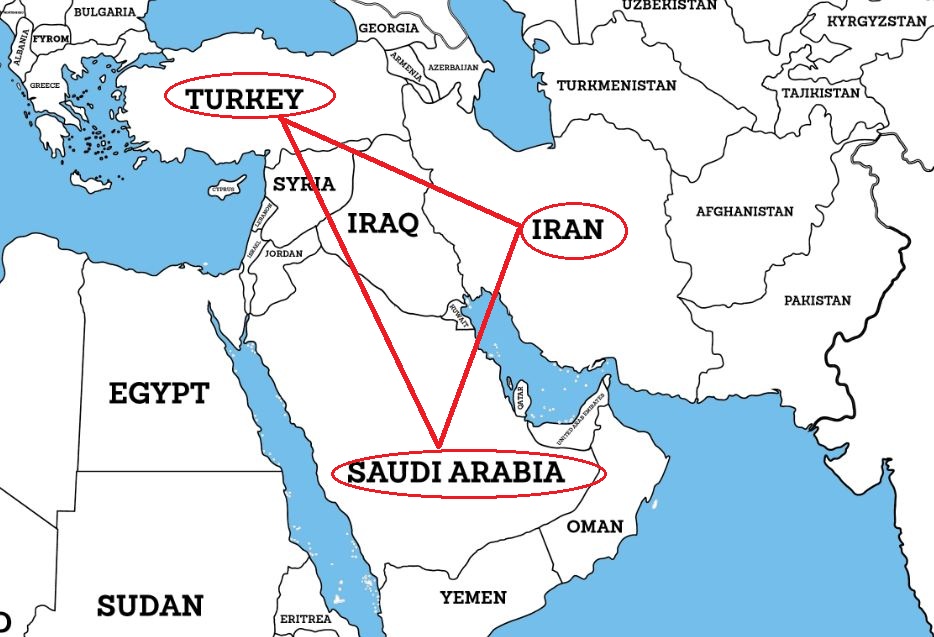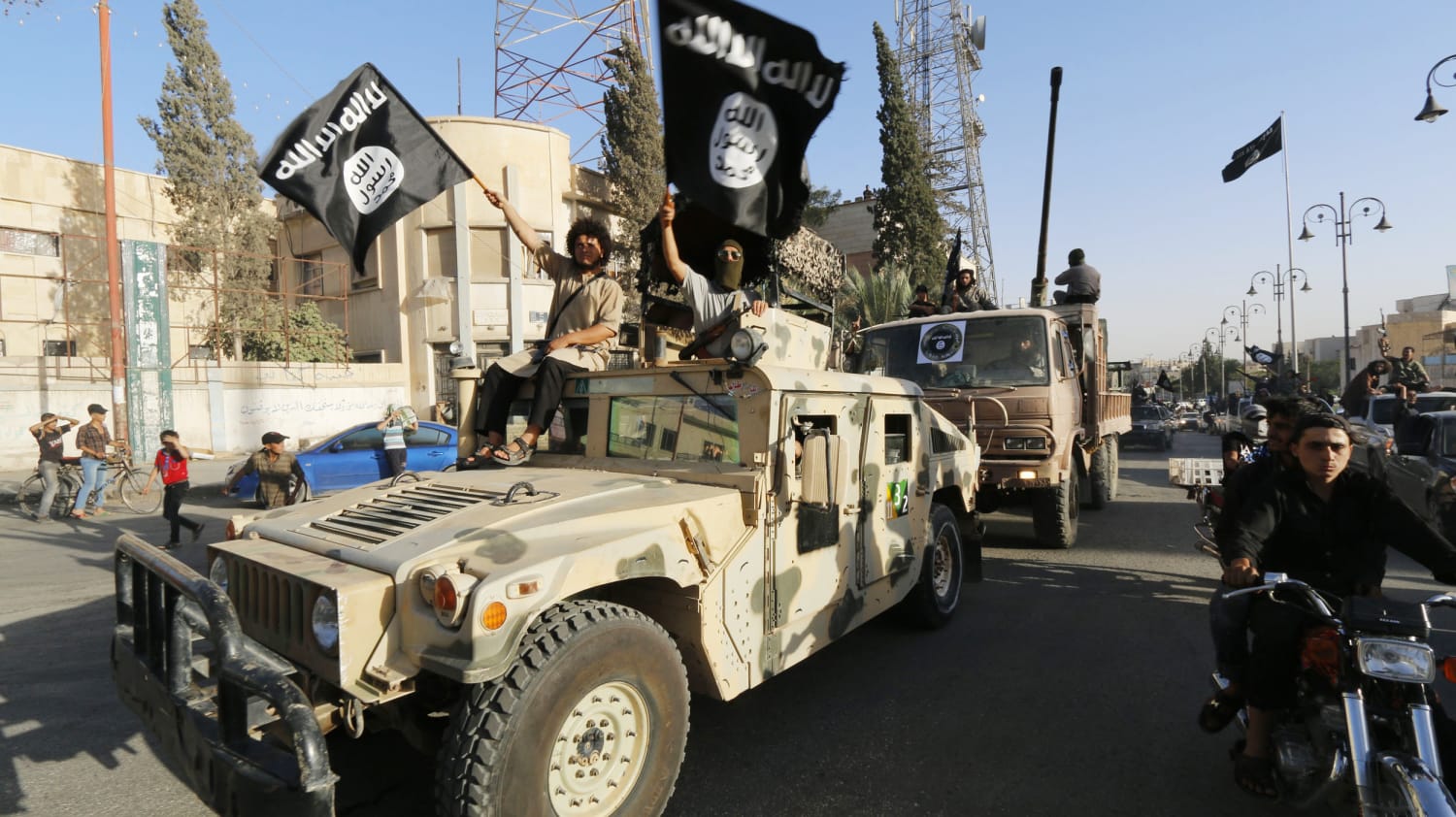The Consequences of the Demise of Iraq
By: Adam Mast
The 2003 American invasion of Iraq turned the Middle East region on its head, introduced new regional players and competitions, and cemented the presence of the American military within the region.
A Brief History
The modern story of Iraq began in 1990, when current Iraqi President Saddam Hussein launched a full-scale invasion into the neighboring state, Kuwait, in order to place himself atop the Arab world hierarchy. After the Iran-Iraq war in the 1980s, Iraq was left weakened and did not fully recover from the war. Hussein yearned to wield the Arab community to form a quasi-military bloc. This was not successful. This left Iraq isolated within its region, alone in its mission of conquest to expand Iraq’s influence within the region.

Saddam Hussein
Image Source: https://www.cnn.com/2013/10/17/world/meast/saddam-hussein-fast-facts/index.html
This invasion prompted an extremely rare international political response; a United Nations-backed military operation. The United States led two UN-backed operations (Desert Shield and Desert Storm) to thwart the further expansion of Iraq, and eradicate their presence from Kuwait. After these missions, Iraq was left reeling, and would further be damaged by a slew of sanctions that would paralyze the Iraqi government and economy. These sanctions included banning Iraqi oil sales, which drastically crippled Iraq’s power and influence within the region, and demanded Iraq to pay concessions to actors harmed in their invasion of Kuwait. These actions by the international community weakened the Iraqi population especially, prompting certain states in the UN to question the morality behind the sanctions.

George Bush greeting some soldiers amid Desert Storm
Image Source: https://history.army.mil/html/bookshelves/resmat/dshield_dstorm/desert-shield.html
In the next few years, US officials would be increasingly interested in invading Iraq, on the basis that linked Hussein to supplying al-Qaeda with Weapons of Mass Destruction. While the wider international community believed the evidence to be faulty, the US and Britain, felt confident in the evidence, leading to the US invading Iraq on March 20th, 2003. After the US failed to find evidence of WMDs in Iraq, the Bush administration altered its mission to de-Ba’athanize and democratize the state. The invasion and ensuing war would ravage the infrastructure, economy, and institutions of Iraq, and would result in the deaths of both the Iraqi people and American soldiers.
What Changed?
The US war against Iraq drastically altered the regional playing field. From the 170s-the 1990s, Iraq and Saddam Hussein were effectively increasing their state power, largely due to their focus on oil sales in the 1970s. After the US invasion, Iraq was a dysfunctional state, with crippled institutions, economy, and infrastructure.
This greatly affected regional power dynamics, as Iran, arguably the largest regional power in the gulf region was able to exert its influence on Iraq in a variety of ways, specifically through supporting Shi’ite groups. Arguably, the descent of Iraq in the early 2000s benefited Iran the most, as they have been able to increase Shi’ite power within Iraq, and eliminated their greatest adversary from the regional power hierarchy. Saudi Arabia also saw an opportunity in expanding its regional power in Iraq, by backing up Sunni groups.
Even Turkey, a state which is not normally incorporated into the analysis of the Gulf region, has been a consistent actor within Iraq, especially when dealing with the Kurdistan Worker’s Party or the PKK. Turkey consistently launches missile strikes against the PKK in northern Iraq. My research paper is focusing on the regional dynamics of Iran and Turkey, and Iraq is one of the main states in which they are competing for influence. Since the invasion of Iraq, the state has acted as a competitive battleground for these three regional states to compete for influence, and to increase their regional power.

Iraq is the connecting point of the trinity of regional powers
Image Source: https://www.balcanicaucaso.org/eng/Areas/Turkey/Turkey-between-Iran-and-Saudi-Arabia-167156
This competition has prevented Iraq from developing a stable political institution, as its politics are being intervened with by so many outside actors. In my SDG presentation, my group found that Iran has been a major player in the failure of Iraqi institutions, because they constantly fund Shi’ite militias to disrupt political systems in Iraq, even going as far as threatening the assassination of political leaders.
The regional competition has also forced smaller states like Bahrain, Kuwait, and Oman to at the very least, somewhat align with these regional powers in order to compete (albeit not at the same level as Saudi-Arabia, Iran, or Turkey) within the region.
The US-led operations of Desert Shield and Desert Storm along with the invasion of Iraq cemented the Middle East at the center of American Foreign Policy. Since 2001, when the US invaded Afghanistan, the US has been essentially stapled to the region. Whether it is invading Afghanistan on the basis of self-defense, invading Iraq to (at least in the Bush Administration’s mind) prevent al-Qaeda from harboring WMDs, or state-building in Iraq, the US has had heavy involvement within the region.
US state building in Iraq also led the state to become a breeding ground for future terrorist organizations like the Islamic State. The institutional instability harbored and radicalized many Islamists, which backfired heavily for the US.

What Now?
The gulf region and the MENA region as a whole are still affected by the demise of Iraq in the early 2000s. At the moment, Iraq is a dysfunctional state that is susceptible to regional powers’ influence. I do not foresee the regional competition between Saudi Arabia, Turkey, and Iran, fading away any time soon. I also do not foresee Iraq becoming a regional power, at least in the next decade, as the regional competition is thwarting their state capacity.
Your point about Turkey was interesting since you connected it to your own research. I also found that the 2003 invasion connected to my research in an impactful way. I think that just goes to show how the Invasion of Iraq so heavily disrupted the many regional dynamics and preexisting tensions.
ReplyDelete